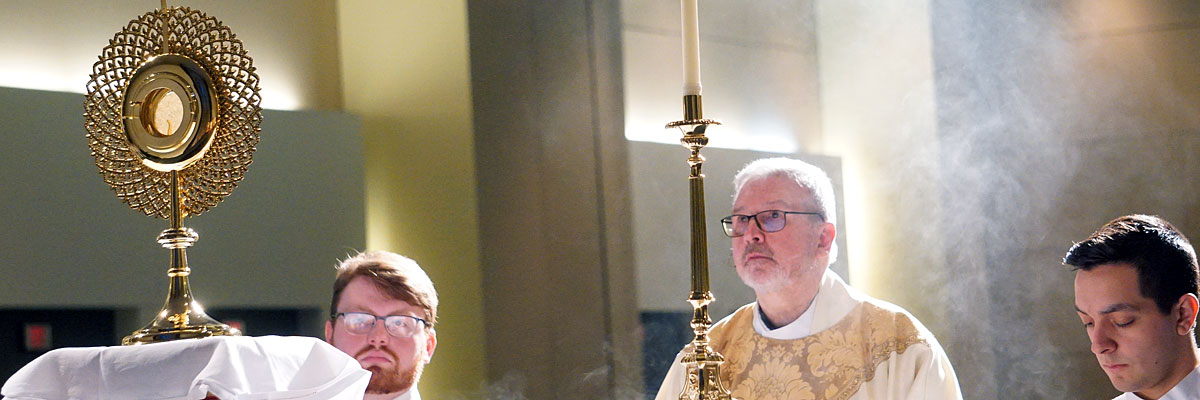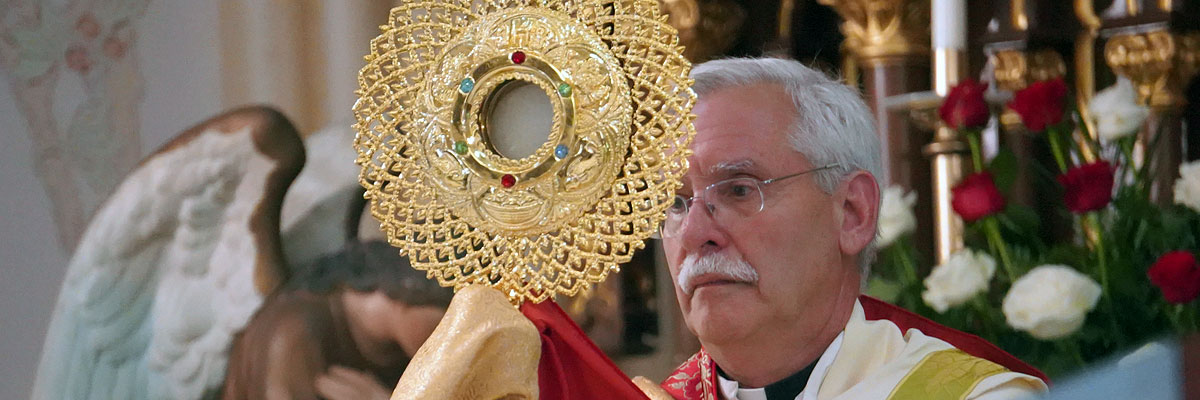Official Website of the
Catholic Diocese of Little Rock
Fourth Sunday in Ordinary Time, Year A
Published: January 29, 2017
Bishop Anthony B. Taylor preached the following homily at St. Mary Church in Saint Vincent on Saturday, Jan. 28, 2017 and St. Benedict Church in Subiaco on Sunday, Jan. 28, 2017.

Bishop Taylor
More is not always better and enough is better than too much. Women using less make up look better than women using too much. Men using less cologne smell better than men using too much.
Spaghetti with a moderate amount of sauce is better than spaghetti smothered in sauce. The same goes for salsa for your enchiladas, icing for your cake and dressing for your salad: Enough is better than too much.
The same thing is true regarding our sense of self, our ego: More is not always better and enough is better than too much.
Many parents fail to discipline their children out of a misguided fear that humbling them will somehow harm their self-esteem, when in fact the opposite is true. Discipline and clear consistent boundaries make children feel secure and give them a solid foundation on which true self-esteem can be built.
In the beatitudes, Jesus says it’s better to be humble, poor in spirit than to be proud … better to mourn, feel the hurt than to be unable to cry … better to be merciful and meek than demanding and assertive … better to be holy and pure than to pursue pleasure … more effective to build peace and resist insults, prejudice, persecution and slander through non-violent means than to respond to hate with more hate.
Violence may prevail in the short term — but it inevitably creates a disastrous situation in the long run, perpetuating the vicious cycle of violence for yet another generation.
And, yet as a society, we Americans seek at every turn precisely the opposite of what Jesus teaches in the beatitudes. We don’t seek to be poor in spirit, we seek empowerment, self-esteem, which is good in itself, except that we fail to understand that humility — teachability, knowing our limitations and that others have a claim on us — humility is necessary for healthy self-esteem.
Many parents fail to discipline their children out of a misguided fear that humbling them will somehow harm their self-esteem, when in fact the opposite is true. Discipline and clear consistent boundaries make children feel secure and give them a solid foundation on which true self-esteem can be built.
As for the second beatitude, we avoid mourning and refuse to face the reality of death. Funeral homes sanitize death because that’s what their customers want. We don’t want to be meek; we want to get our way. Our society doesn’t value righteousness; it preaches tolerance of some of the most immoral acts you can imagine, including killing unborn babies.
Neither are we merciful. We are the only First World country that still executes criminals. And then of course we had last week's executive actions targeting Muslims and immigrants, including those who came here innocently as children. We are anything but merciful.
We are also very short-sighted. Nor are we pure of heart — not in matters of sexual morality nor in the greed and self-interest that drives much of our economy.
Our idea of being a peacemaker has nothing to do with self-sacrificing love and everything to do with overwhelming force, even though in many instances this just sows the seeds of more conflict in the future — and is in any event the opposite of the turn-the-other-cheek, forgive-your-enemies — teaching of Jesus Christ.
And as for persecution, like it or not, much of the world views us as persecutors or at least collaborators with oppressors, and not the other way around.
So we go down the wrong path, looking for happiness in all the wrong places — in power, possessions, pleasure and prestige — thinking that more is always better, and that you can never get too much of a good thing. And yet our pursuit of excess only leaves us feeling more and more empty inside.
Next time you go to the store, check to see whether the customers are smiling, whether they seem to be happy or not. In the beatitudes Jesus teaches us the path to happiness.
It is the path of humble service, the path of justice, mercy and purity, the path of peace and non-violent resistance to evil. The path to true happiness is the way of the cross; the path of self-sacrificing love!









